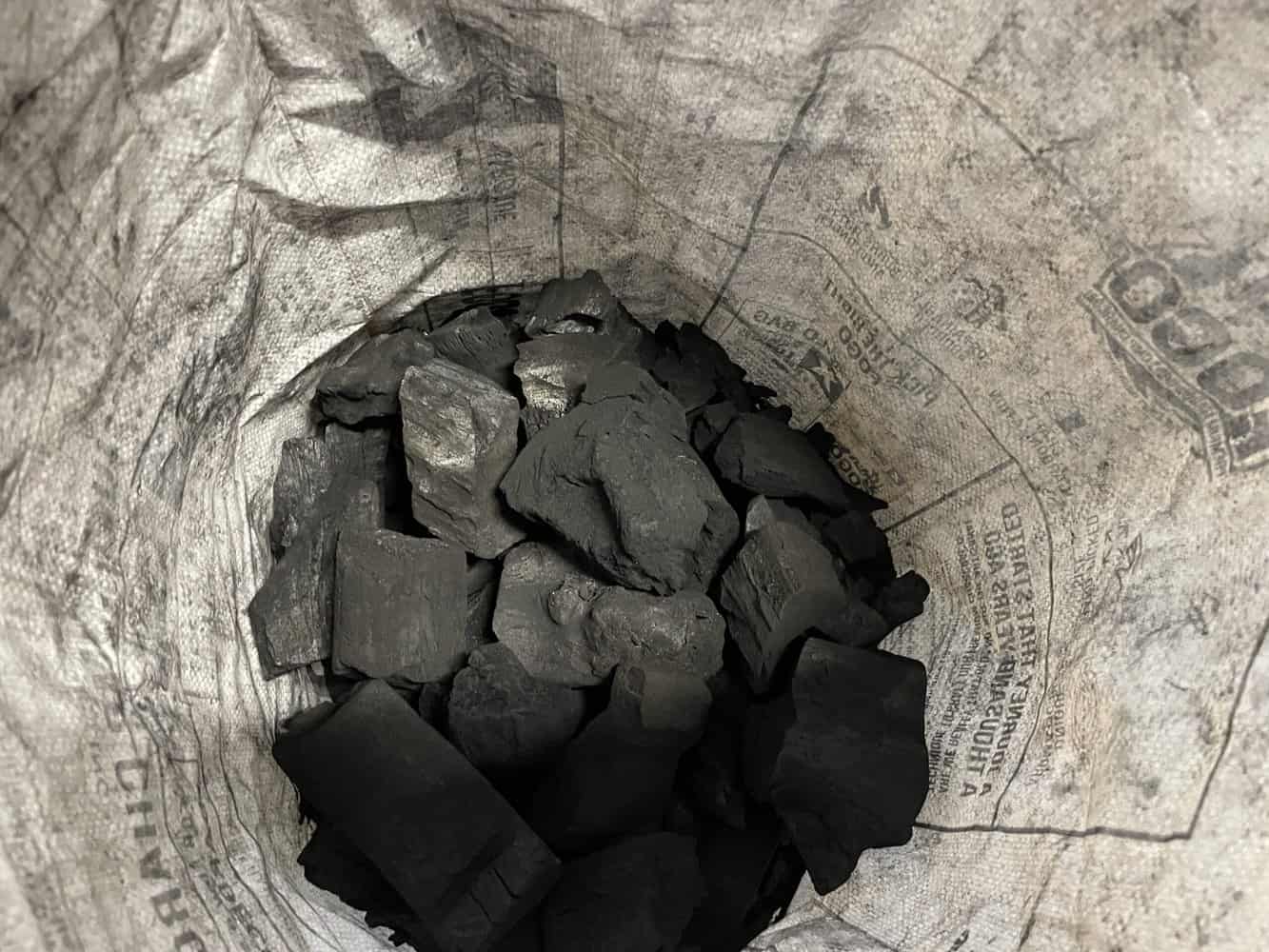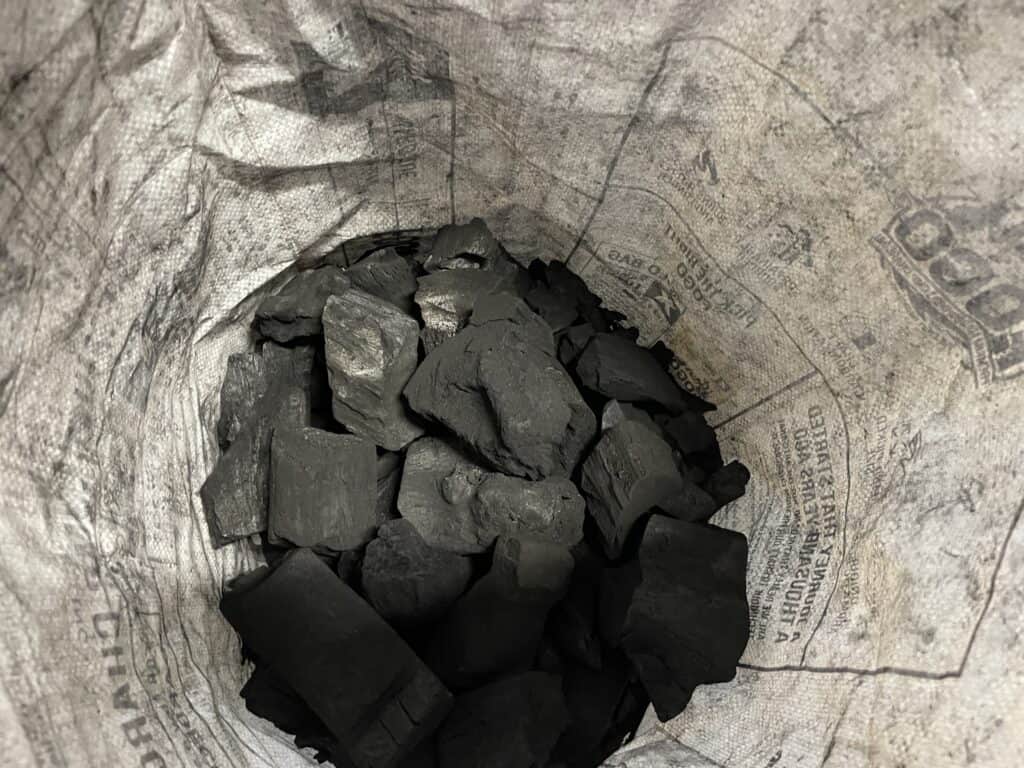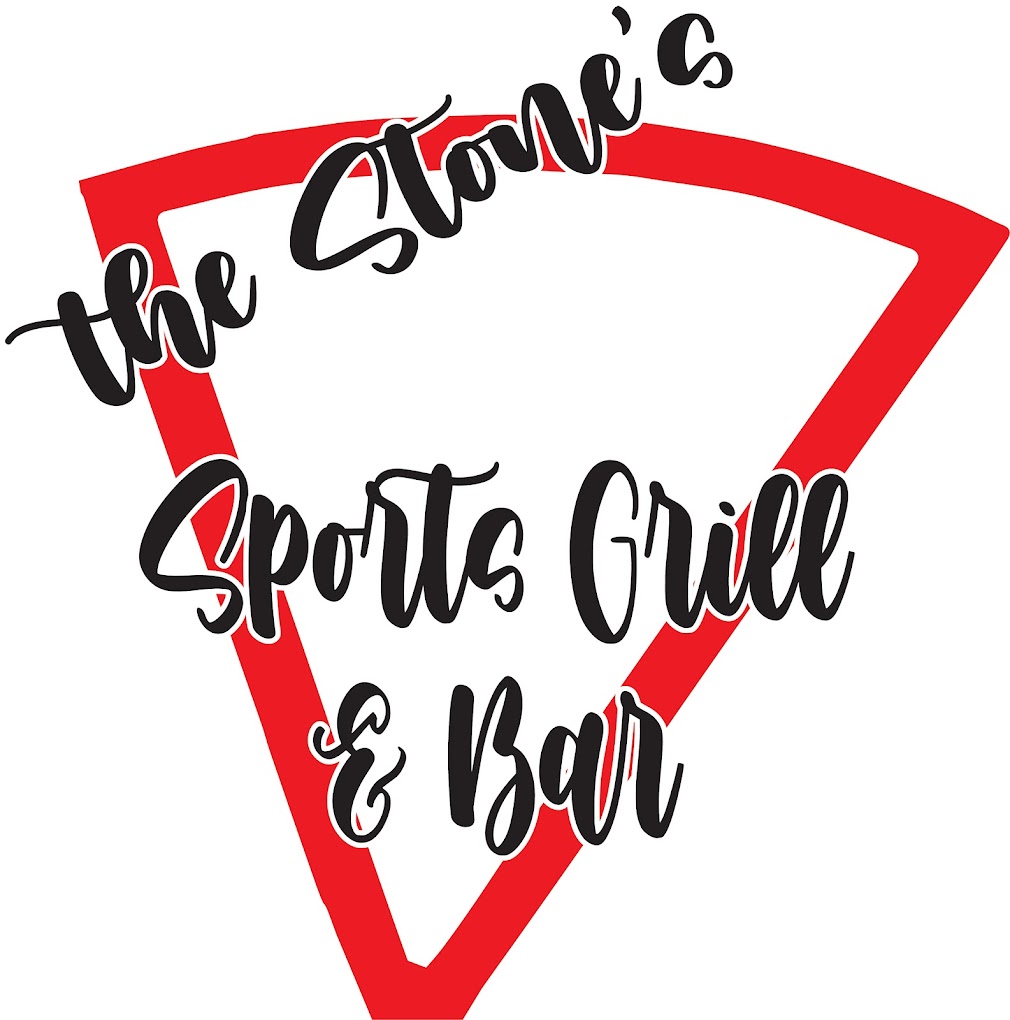Introduction
What Is Charcoal And Its Importance In Grilling
Charcoal is a popular fuel used for grilling and barbecuing. It is made by burning wood without the use of chemical additives. There are two main types of charcoal: lump charcoal and charcoal briquettes. Lump charcoal is known for its high quality, as it burns hotter and cleaner compared to charcoal briquettes. It also adds a smoky flavor to the grilled food, enhancing the overall taste.
The Question Of Whether Charcoal Can Go Bad
One common question that arises is whether charcoal can go bad. The shelf life of charcoal, whether in the form of lump charcoal or charcoal briquettes, is not indefinite. Over time, charcoal can lose its effectiveness, making it harder to light and maintain a consistent temperature. However, if stored properly, charcoal can last for a long time and remain usable.
To clarify the shelf life of charcoal, it is important to consider the storage conditions and the type of charcoal used. Both lump charcoal and charcoal briquettes can be affected by moisture, which can lead to clumping and difficulty in igniting. Additionally, exposure to air can cause charcoal to become less effective over time.
To extend the shelf life of charcoal, it is recommended to store it in a dry and airtight container. This helps to prevent moisture absorption and maintain the quality of the charcoal. It is also important to keep the charcoal away from any sources of heat or open flames.
In conclusion, while charcoal does not have an indefinite shelf life, proper storage can prolong its usability. By storing charcoal in a dry and airtight container, you can ensure that it remains effective for grilling and barbecuing.
Factors Affecting the Shelf Life of Charcoal
One of the main factors that can affect the shelf life of charcoal is moisture. Moisture can cause charcoal to clump together, making it difficult to ignite and burn properly. It can also lead to mold and bacterial growth, rendering the charcoal unusable. To prevent moisture damage, it is important to store charcoal in a dry and well-ventilated area, protected from rain and humidity.
Another factor that can impact the quality of charcoal over time is exposure to air. When charcoal is exposed to air, it can absorb moisture, dust, and other pollutants, which can affect its performance. This can result in a decrease in heat production and burn time, making the charcoal less effective for grilling or barbecuing. To minimize air exposure, it is recommended to store charcoal in an airtight container or bag.
It is also important to note that the type of charcoal used can determine its shelf life. Lump charcoal, which is made from chunks of natural wood, tends to have a shorter shelf life compared to charcoal briquettes. This is because lump charcoal is more susceptible to moisture absorption. Charcoal briquettes, on the other hand, are typically made with additives that help them resist moisture and maintain their quality for a longer period.
In conclusion, proper storage is essential to maintain the quality and usability of charcoal. By keeping it in a dry, well-ventilated, and airtight container, you can prolong its shelf life and ensure that it performs well for your grilling and barbecuing needs.

Signs Of Bad Charcoal
Identifying signs of spoiled charcoal:
- Clumping together: Charcoal that has absorbed moisture will clump together, making it difficult to light and burn evenly.
- Mold or foul odor: If charcoal has been exposed to excessive moisture or stored in a humid environment, it may develop mold or a foul odor. This is a clear indication that the charcoal has gone bad and should not be used.
- Dusty or crumbly texture: Charcoal that has been exposed to air for a long period may become dusty or crumbly. This can affect its ability to ignite easily and produce consistent heat.
The effects of bad charcoal on grilling experience:
- Inconsistent heat: Bad charcoal may not burn at a consistent temperature, resulting in uneven cooking and difficulty in achieving desired results.
- Longer cooking time: Charcoal that has gone bad may take longer to ignite and burn, prolonging the cooking process.
- Unpleasant taste: Moldy or spoiled charcoal can impart an unpleasant taste to the food being grilled, affecting the overall flavor.
It is important to note these signs of bad charcoal and avoid using it for grilling or barbecuing. To ensure a successful grilling experience, always check the quality of charcoal before use and discard any charcoal that shows signs of spoilage.
How To Properly Store Charcoal
Tips For Storing Charcoal To Maximize Shelf Life
Properly storing charcoal is essential in ensuring its long-term usability. Here are some tips to help you store your charcoal effectively:
- Keep it in an airtight container or bag: Airtight containers or bags are ideal for preventing moisture from reaching the charcoal. This helps to maintain its quality and prevent it from going bad.
- Store in a cool and dry place: Moisture is the primary enemy of charcoal. It is important to store it in a cool and dry location, away from any sources of water or humidity. Avoid storing it in basements, near windows, or in areas prone to condensation.
- Keep away from direct sunlight: Exposure to direct sunlight can cause the charcoal to deteriorate and lose its effectiveness. Store it in a shaded area or cover it with a cloth or tarp if it needs to be kept outside.
The Importance Of Keeping Charcoal Dry
Keeping charcoal dry is crucial for maintaining its usability. Here’s why:
- Moisture affects the lighting process: Wet charcoal tends to be more difficult to ignite, leading to longer ignition times and potential frustration during the grilling process.
- Impact on heat production: Moist charcoal may not burn at a consistent temperature, resulting in uneven cooking and difficulties in achieving desired grilling results.
- Risk of mold and foul odor: When charcoal absorbs moisture, it becomes a breeding ground for mold and can develop a foul odor. Moldy or spoiled charcoal should never be used as it can affect the flavor of the food being cooked.
In conclusion, storing charcoal properly is essential for maximizing its shelf life. By following these tips and keeping it in a cool, dry, and airtight container, you can ensure that your charcoal remains in good condition and ready for your next grilling adventure.
Lump Charcoal Vs Charcoal Briquettes
Differences Between Lump Charcoal And Charcoal Briquettes
When it comes to grilling and barbecue, the choice of fuel can greatly impact the flavor and cooking experience. Here are some key differences between lump charcoal and charcoal briquettes:
- Lump charcoal is made from burning wood without any additives, resulting in pure charcoal. On the other hand, charcoal briquettes are made by combining charcoal with binders, fillers, and additives to create consistent shapes.
- Lump charcoal burns hotter and faster compared to charcoal briquettes. It provides a more intense heat that is ideal for searing and quick grilling.
- Charcoal briquettes, on the other hand, burn at a lower temperature and for a longer duration. They are suitable for slow cooking and maintaining consistent heat over a longer period of time.
- Lump charcoal produces less ash and smoke compared to charcoal briquettes. This makes it a preferred choice for those who want a cleaner grilling experience.
- In terms of flavor, lump charcoal imparts a smoky taste to the food, while charcoal briquettes may have added chemicals that can affect the flavor.
Does One Type Have A Longer Shelf Life?
Both lump charcoal and charcoal briquettes can go bad if not stored properly. However, lump charcoal generally has a longer shelf life compared to charcoal briquettes. The absence of additives and binders in lump charcoal allows it to remain usable for a longer period of time.
To maximize the shelf life of both types of charcoal, it is important to store them in a cool, dry, and airtight container. This helps prevent moisture from reaching the charcoal and causing it to deteriorate. Avoid storing charcoal in areas prone to condensation or direct sunlight, as these can also negatively impact its quality.
Remember, proper storage and handling are key to ensuring that your charcoal remains in good condition and ready to enhance your grilling adventures.

Extending The Shelf Life Of Charcoal
To ensure that your charcoal remains usable for a longer period of time, there are a few methods you can utilize to extend its shelf life. Here are some tips on how to prolong the life of your charcoal:
Proper Storage Techniques To Prevent Moisture Absorption
- Store your charcoal in a cool, dry place: Moisture is the primary culprit when it comes to charcoal going bad. Keeping your charcoal in a cool, dry environment is essential to prevent it from absorbing moisture and losing its effectiveness.
- Use an airtight container or bag: To further protect your charcoal from moisture, consider storing it in an airtight container or bag. This will create a barrier and prevent moisture from reaching the charcoal.
- Avoid areas prone to condensation: Do not store your charcoal in areas where condensation is likely to occur, such as basements or areas with high humidity levels. These conditions can accelerate the deterioration of your charcoal.
- Keep it away from direct sunlight: Exposure to direct sunlight can also negatively impact the quality of your charcoal. Store it in a shaded area to prevent any potential damage.
By following these proper storage techniques, you can effectively extend the shelf life of your charcoal and ensure that it remains in good condition for all your grilling needs.
Common Misconceptions About Charcoal Shelf Life
Dispelling Common Myths About Charcoal Going Bad
There are several misconceptions surrounding the shelf life of charcoal. Let’s clear up some of these myths:
- Charcoal expires: Contrary to popular belief, charcoal itself does not have an expiration date. Since it is essentially carbon, it does not break down or spoil over time.
- Charcoal goes bad because of age: The age of charcoal alone does not determine whether it goes bad. Rather, it is the presence of moisture that affects its usability and effectiveness.
- All charcoal types have the same shelf life: Lump charcoal and charcoal briquettes have different properties that can impact their shelf life. Lump charcoal, being more natural and free of additives, tends to have a longer shelf life compared to briquettes.
Separating Fact From Fiction
To prolong the shelf life of your charcoal, it is essential to understand the facts:
- Moisture is the primary culprit: Charcoal absorbs moisture, which reduces its ability to ignite and burn efficiently. This is why proper storage techniques are crucial.
- Proper storage prevents deterioration: Storing charcoal in a cool, dry place, such as an airtight container or bag, helps prevent moisture absorption and maintains the charcoal’s quality.
- Avoid condensation-prone areas: Storing charcoal in areas with high humidity or prone to condensation, like basements, can accelerate its deterioration.
- Direct sunlight can cause damage: Exposure to direct sunlight can also impact the quality of charcoal. It is best to store it in a shaded area.
By understanding these facts and dispelling common misconceptions, you can ensure that your charcoal remains usable for an extended period and enhance your grilling experience.
Recommended Brands And Products
Top Charcoal Brands With Long Shelf Lives
- Kingsford Original Charcoal: Known for its consistent heat and long burn time, Kingsford charcoal is a popular choice among grilling enthusiasts. It is made from natural hardwood and has a shelf life of several years if stored properly.
- Royal Oak Lump Charcoal: Made from 100% hardwood, Royal Oak lump charcoal offers a unique flavor profile and burns hotter and cleaner than briquettes. It has a long shelf life and is ideal for low and slow cooking.
- Fogo Super Premium Charcoal: Fogo charcoal is made from hand-selected hardwood and has a reputation for its large and long-lasting pieces. It burns hot and produces minimal ash, making it ideal for both grilling and smoking.
Product Recommendations For Reliable BBQ Fuel
- Weber Briquettes: Weber briquettes are made from all-natural hardwood with no added chemicals. They offer consistent heat and burn evenly, making them a reliable choice for barbecues.
- Jealous Devil Lump Charcoal: Jealous Devil produces high-quality lump charcoal made from South American hardwoods. It burns hot and clean, with minimal sparks and smoke.
- Rockwood All-Natural Hardwood Lump Charcoal: Rockwood lump charcoal is made from Missouri hardwoods and is known for its long burn time and consistent heat. It is ideal for grilling and smoking.
When choosing charcoal, it’s important to consider your cooking needs and personal preferences. Whether you prefer briquettes or lump charcoal, these recommended brands and products offer reliable fuel for your BBQ adventures. Remember to store your charcoal properly to extend its shelf life and ensure optimal performance.
Conclusion
Summary Of Key Points Discussed
- Charcoal does not technically go bad over time, but it can lose its effectiveness and quality if not stored properly.
- Moisture exposure, air, and other environmental factors can affect the performance of charcoal, causing it to become less efficient in terms of heat production and burn time.
- To maximize the shelf life of charcoal, it is important to store it in a dry, well-ventilated area protected from moisture and humidity.
The Importance Of Proper Charcoal Storage And Understanding Its Shelf Life.
- Proper charcoal storage is essential to maintain its quality and performance.
- Moisture is the primary culprit in charcoal degradation, so it is crucial to keep charcoal in a cool, dry place.
- Storing charcoal in an airtight container or bag can further protect it from moisture and air exposure.
- Different charcoal brands and products offer varying shelf lives, with some lasting several years if stored correctly.
- Recommended charcoal brands and products include Kingsford Original Charcoal, Royal Oak Lump Charcoal, Fogo Super Premium Charcoal, Weber Briquettes, Jealous Devil Lump Charcoal, and Rockwood All-Natural Hardwood Lump Charcoal.
- Choosing the right charcoal for your cooking needs and personal preferences is important for optimal grilling and smoking results.
Overall, understanding proper charcoal storage and following recommended practices can help maximize the shelf life and performance of charcoal. By doing so, you can enjoy consistent heat and long burn times for your BBQ adventures.
FAQ: Does Charcoal Go Bad? Understanding the Shelf Life of Your BBQ Fuel
Q: Does charcoal go bad?
A: Yes, charcoal can go bad over time if not stored properly or if it has been exposed to moisture.
Q: How long does charcoal last?
A: The shelf life of charcoal depends on various factors such as the type of charcoal, storage conditions, and moisture exposure. Generally, high-quality charcoal can last indefinitely if stored properly.
Q: What is the shelf life of charcoal briquettes?
A: Charcoal briquettes, which are compressed charcoal mixed with binders, typically have a shelf life of about one to two years if stored in a cool, dry place and remain unopened.
Q: Can opened packages of charcoal briquettes go bad?
A: Once opened, charcoal briquettes can start to degrade, especially if they are exposed to moisture or air. To maintain their quality, it is best to use them within a few months after opening.
Q: How can I tell if charcoal has gone bad?
A: Charcoal that has gone bad may appear discolored, damp, or crumbled. It may also have a strong, unpleasant odor. If you notice any of these signs, it is best to discard the charcoal and get a fresh supply.
Q: Can I still use charcoal that has gone bad?
A: It is not recommended to use charcoal that has gone bad. Bad charcoal may not burn efficiently and can produce excessive smoke, affecting the taste and quality of your BBQ.
Q: How should I store charcoal to maximize its shelf life?
A: To ensure the longest possible shelf life for your charcoal, store it in a cool, dry place, away from direct sunlight and moisture. Consider using airtight containers or resealable bags to keep it protected from the elements.
Q: Can I revive charcoal that has absorbed moisture?
A: If your charcoal has absorbed moisture, it may not burn as effectively. However, you can try drying it out by placing the charcoal in a well-ventilated area for a few days or using a food dehydrator. Just be cautious of any potential chemicals or accelerants used in the drying process.
Q: Are there any safety precautions to consider when using charcoal?
A: When using charcoal, always follow the manufacturer’s instructions, and use the appropriate tools and safety equipment. Ensure proper ventilation when grilling indoors, and never leave a lit grill unattended. Additionally, dispose of ashes properly and consider fire safety regulations in your area.
In conclusion, while charcoal can go bad over time if not stored properly or exposed to moisture, it can have an indefinite shelf life if stored in a cool, dry place. To maintain the quality of your charcoal, make sure to store it correctly, keep it away from moisture, and discard any charcoal that appears discolored, damp, or crumbled. Always prioritize safety when using charcoal for your BBQ.

The Stone’s Sports Grill and Bar was Established on December 1, 2021. The Stone is a Sequel to another restaurant called Cornerstone’s First Edition in Tucumcari, NM. This particular venue is located on the Southeast side of Colorado Springs. The Stone is Wide Open. We have a large dance floor, multi-level stage, pool room, (5) dart boards, and a bar with a large selection of wine spirits and brews.